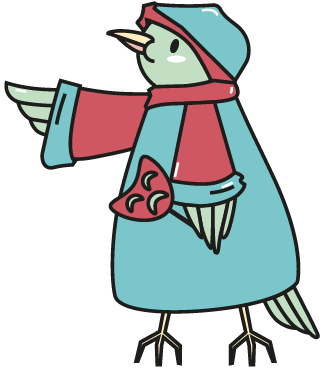

11 years ago, the Klinika Lalek Theatre, i.e. the hosts of the “Dziecinada” International Festival of Children’s Theatre, also founded a theatere for the youngest children, which debuted on the stage at the Impart Art Center at ul. Mazowiecka 17 in Wrocław.
Where did the idea to create “Dziecinada” come from – what were its beginnings like?
The first performance they presented was “Peter Pan”, a story by the Scottish novelist and playwright J.M. Barrie, which he created out of the need to interest and charm his friends’ children. However, before the boy’s story became a best-selling novel, it was originally written as a stage play called “Peter Pan”. The performance by the Wrocław Children’s Theatre turned out to be an excellent choice and suggestion for a stationary programme. The large hall at Impart was selling out all the tickets, and puppet characters flew over the heads of the audience. The director of the Klinika Lalek Theatre, Wiktor Wiktorczyk, immediately noticed the great need to expand the theatre offer for the youngest children. After all, there is nothing more beautiful than the most sincere of audiences, i.e. children – who yawn when bored and squeal as if at The Beatles concert when full of excitement. Feedback is immediate and unimaginably variable. It turned out that in a city where over 100,000 children live, there was no theatre festival dedicated especially to them. This is how the first “Dziecinada” was created. The auditoriums were bursting at the seams, tickets sold out in the blink of an eye. It was a success! Children’s theatre is magic! Good magic!
Why is it worth getting children interested in theatre?
In times when there is less and less real relationships between people, and the eyes are fixed mainly on screens, it is theatre that has the great power to teach about emotions, how to name them and how to create bonds with peers. It uses imagination to introduce to specific situations and then show how to deal with them. Social intelligence, integration. These are the values that children have a chance to develop and build by actively participating in the life of theatre.
Is the festival open to everyone?
The Klinika Lalek Theatre has always openly announced and repeated that theatre should be open to everyone. Regardless of the financial and social situation of the young viewer. That is why the organisers systematically remind that if someone has the desire but lacks the means, they should simply contact them to draw up an action plan together in order to make participation in the festival real and achievable. For everyone. With no exceptions. All kinds of educational institutions and centres are also welcome to contact them, including those for blind and visually impaired children, as well as those for deaf and hard of hearing children. Audience integration is the most important thing, a common space and mindfulness of the fact that a colleague next to you may have a differently developed sensitivity. The hosts naturally set and defined their accessibility as a mission before the laws stated that art must be accessible and should be translated and adapted for people with various disabilities. Hence the idea for audio description during performances and the introduction of translations into Polish sign language, but also for visits of specially trained clowns at hospices. As organisers, we try to respond to the needs, we treat theatre as a tool of transformation.
What can be said about the 10th edition of the festival?
At the turn of September and October, theatre troupes from various parts of Europe will once again come to Wrocław to participate in the 10th edition of the “Dziecinada” International Festival of Children’s Theatre. This year, Wrocław will be visited by, e.g. artists from Italy, Finland, Lithuania and Slovakia. We have also planned the Dutch Day.
Each invited performance is a story. Theatre will reach unconventional places. Intimate, sensory performances, with a very close relationship that blurs the boundaries between the actor and the spectator, will contrast with the open-air sunny party. Tradition will go hand in hand with modernity here. Some of the activities will be about taming the differently understood otherness, both thanks to artistic statements and the availability of performances for people with disabilities, and accessibility regardless of the financial situation of the spectators. The 10th edition of the festival focuses on the cycle of life: from birth, through childhood and the power of imagination which it brings, to meetings leading to mature relationships. The atmospheric theatre of street vagabonds and large stage shows will be juxtaposed with performances which will convince you that the entire theatrical world can easily fit into a small box, and that miniatures hide great theatrical potential. The topic of the beauty of our planet and how we should take care of it will also be addressed on the stage many times.
Spectators will find here stories about beautiful love, but also about untamed emotions, such as loneliness. They will listen to the story about their place on earth, but also about loss and rediscovering what gives us a sense of security. There will be the theme of the “others” who disturb the peace and take away the confidence, but also bring something new: magic!
How can you sum up the role of theatre in a child’s life in a couple of points?
– integration, socialisation
– answers to difficult topics such as old age, loneliness, death, conflict, lack of tolerance
– entertainment, joy and learning by playing theatre
– development of imagination, setting free the magic and sincerity, authenticity
– surprise, motivation, learning, arousing curiosity
– showing other cultures, getting used to the unknown
– upporting the multidimensional development of children, parents and carers
It is important for the programme to be interactive and engaging. It should teach agency and the ability to improvise. Show cultural diversity.

